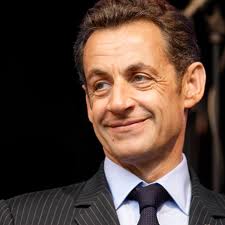naija questions
Moderator
Reuters/NAN - French investigators have abandoned a party funding inquiry against former President Nicolas Sarkozy, a judicial source said on Monday in a legal case that could have scotched his chances of running for a new term.
Sarkozy, who many conservatives wanted to see lead the centre-right in the 2017 presidential race, was being pursued with others in an investigation into his UMP party's ties with France's richest woman, L'Oreal heiress Liliane Bettencourt.
The allegation was that Sarkozy, 58, took advantage of the mental frailty of billionaire Bettencourt to obtain money for his 2007 presidential campaign, which the former French president denied.
The two magistrates in charge of the investigation decided to pursue their case against former French Budget Minister Eric Woerth and nine others in the case, said the judicial source, who spoke on condition of anonymity.
Sarkozy had largely stayed out of the limelight since his defeat to Francois Hollande, but had since the start of the year fanned speculation that he was mulling a re-election bid.
Some 62 per cent of conservative UMP voters wanted to see Sarkozy run for the presidency in 2017, according to an Ifop poll published in September.
But while the ruling granted Sarkozy more freedom to intervene in public life, he would further be questioned in the
so-called "Karachi Affair", a drawn-out corruption case linked to arms sales and a deadly bombing in Pakistan in 2002.
A Paris appeal court last week authorised the magistrate to investigate whether Sarkozy, then president, violated judicial secrecy in 2011 by publishing a statement which referred to a case records that were meant to be kept secret.
Meanwhile, former Prime Minister Francois Fillon, once a stalwart supporter of Sarkozy and now a likely electoral rival for 2017, said this week he had no choice but to be "in conflict" with the former president.
``I cannot take on all the consequences of a presidential candidacy and not be in conflict with Nicolas Sarkozy, given his state of mind," Fillon told the JDD weekly paper. "De facto, we are in competition."
Indeed, the UMP that Sarkozy once ran as a disciplined group has splintered into factions loyal to Fillon and rival Party Chief, Jean-Francois Cope, with some former supporters saying that Sarkozy should bow out of politics.
Freshly emerged from a fund-raising drive to pay back the cost of Sarkozy's re-election campaign, which narrowly saved the party from bankruptcy, the UMP now faces a serious electoral challenge from the far-right National Front party.
The UMP candidate in a local election in southern France gathered only half as many votes as his National Front rival, a bad sign for the party's chances of regaining territory in municipal and European elections next year.
Its leadership fractured, and with Sarkozy staying out of the political limelight, it also faces a fresh challenge from two centrist leaders, Jean-Louis Borloo and Francois Bayrou, possibly joining forces.

Sarkozy, who many conservatives wanted to see lead the centre-right in the 2017 presidential race, was being pursued with others in an investigation into his UMP party's ties with France's richest woman, L'Oreal heiress Liliane Bettencourt.
The allegation was that Sarkozy, 58, took advantage of the mental frailty of billionaire Bettencourt to obtain money for his 2007 presidential campaign, which the former French president denied.
The two magistrates in charge of the investigation decided to pursue their case against former French Budget Minister Eric Woerth and nine others in the case, said the judicial source, who spoke on condition of anonymity.
Sarkozy had largely stayed out of the limelight since his defeat to Francois Hollande, but had since the start of the year fanned speculation that he was mulling a re-election bid.
Some 62 per cent of conservative UMP voters wanted to see Sarkozy run for the presidency in 2017, according to an Ifop poll published in September.
But while the ruling granted Sarkozy more freedom to intervene in public life, he would further be questioned in the
so-called "Karachi Affair", a drawn-out corruption case linked to arms sales and a deadly bombing in Pakistan in 2002.
A Paris appeal court last week authorised the magistrate to investigate whether Sarkozy, then president, violated judicial secrecy in 2011 by publishing a statement which referred to a case records that were meant to be kept secret.
Meanwhile, former Prime Minister Francois Fillon, once a stalwart supporter of Sarkozy and now a likely electoral rival for 2017, said this week he had no choice but to be "in conflict" with the former president.
``I cannot take on all the consequences of a presidential candidacy and not be in conflict with Nicolas Sarkozy, given his state of mind," Fillon told the JDD weekly paper. "De facto, we are in competition."
Indeed, the UMP that Sarkozy once ran as a disciplined group has splintered into factions loyal to Fillon and rival Party Chief, Jean-Francois Cope, with some former supporters saying that Sarkozy should bow out of politics.
Freshly emerged from a fund-raising drive to pay back the cost of Sarkozy's re-election campaign, which narrowly saved the party from bankruptcy, the UMP now faces a serious electoral challenge from the far-right National Front party.
The UMP candidate in a local election in southern France gathered only half as many votes as his National Front rival, a bad sign for the party's chances of regaining territory in municipal and European elections next year.
Its leadership fractured, and with Sarkozy staying out of the political limelight, it also faces a fresh challenge from two centrist leaders, Jean-Louis Borloo and Francois Bayrou, possibly joining forces.


